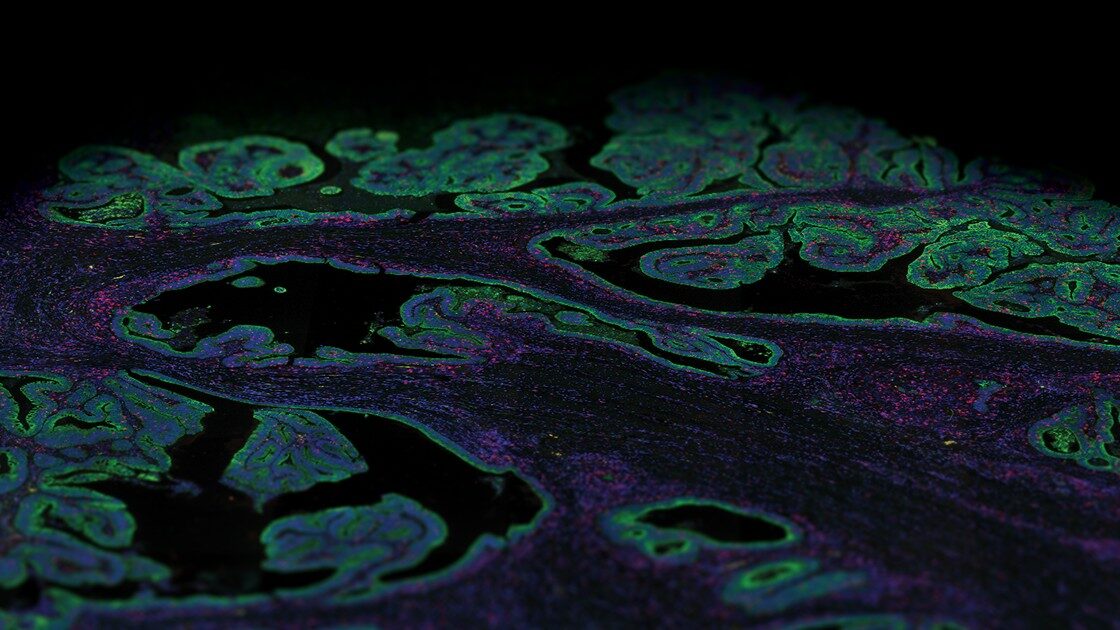
NanoString Blog
Category: Spatial Transcriptomics
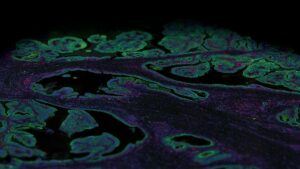
Multiomics Spatial Analysis Spatial Biology Spatial Transcriptomics
GeoMx® DSP Spatial Proteogenomics datasets now available on Illumina® BaseSpace™ Sequence Hub
NanoString and Illumina have collaborated to release two new demo datasets of GeoMx Digital Spatial Profiler (DSP) data on the Illumina BaseSpace Sequence Hub (BSSH) cloud. Spatial proteogenomics enables new…
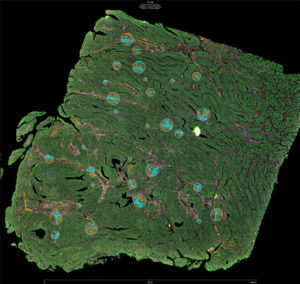
Spatial Transcriptomics
What is transcriptomics?
The transcriptome is the sum of all the RNA in an organism’s cells and tissues being actively transcribed at any given time from genomic DNA. It includes protein-coding messenger RNA (mRNA)…

Spatial Transcriptomics
An Integrated Omics Approach: The Human Protein Atlas
Although humans have been using atlases for thousands of years, the word atlas was first coined in 1595 by the Flemish map maker Gerardus Mercator. In geographical terms, an atlas…

Spatial Transcriptomics
What is the human protein atlas used for?
In order to understand the role of each protein in various biological processes such as cell organization, signaling pathways, or disease mechanisms, it becomes essential to study protein expression with…

Digital Spatial Profiling GeoMx DSP Spatial Transcriptomics
FFPE Genomics: a Portal Into the World of Transcriptomic Research?
The emergence of spatial transcriptomics, with its ability to generate highly detailed maps of gene expression with spatial context, is revolutionizing biomedical research, particularly in developmental biology, cancer, immunology, and…

CosMx SMI Spatial Transcriptomics
Common questions in molecular biology: What are the most common biomarkers?
If you stopped someone on the street and asked them to give you an example of a common biomarker, you will more than likely be met with silence. However, if…
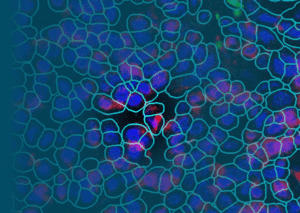
CosMx SMI Spatial Transcriptomics
A Spatial Twist on Biomarkers: Using Spatial Transcriptomics for Biomarker Discovery
Anyone who studies biology knows that living systems are highly complex, sophisticated entities, often containing redundant processes. Sorting out the mechanisms at play in any biological system is therefore aided…

CosMx SMI Spatial Biology Spatial Transcriptomics
What’s New at NanoString for 2023: The Arrival of the First Fully Integrated Single-Cell Spatial Solution
One of the interesting hallmarks of celebrating the start of a new year is the consumption of special foods. For example, in the American South Hoppin’ John, or black-eyed peas,…

Multiomics Spatial Analysis Spatial Transcriptomics
Integrated Spatial Multiomics Deconvolve Multicellular Dynamics in Pancreatic Cancer
In an extraordinary team effort led by the Center for Systems Biology at Harvard Medical School, in collaboration with NanoString, scientist Will Hwang and colleagues used integrated spatial multiomic and…
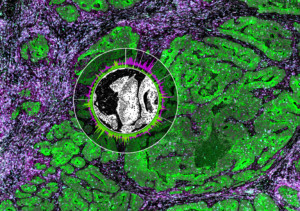
Digital Spatial Profiling Multiomics Spatial Analysis Spatial Transcriptomics
Spatial Multiomics Identifies New Actionable Therapeutic Targets
Pancreatic cancer represents 3% of the overall cancers in America and yet is responsible for 7% of all cancer deaths. The five-year relative survival rate – the cancer-related death rate…

CosMx SMI Spatial Molecular Imaging Spatial Transcriptomics
Spatial Multiomics Single-Cell Imaging Platform to Explore FFPE Tissues with Spatial Context
What is Spatial Multiomics? Spatial multiomics describe the ability to locate and quantify DNA, RNA, and protein in the three-dimensional space of a tissue. Decades of research have built a…

Spatial Transcriptomics
Understanding Spatial Sequencing in the Context of Spatial Biology
What is spatial sequencing? Spatial sequencing is viewing a specific area or a region within a tissue, then sequencing all transcripts found in that region. Spatial sequencing allows the user…